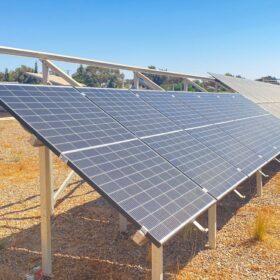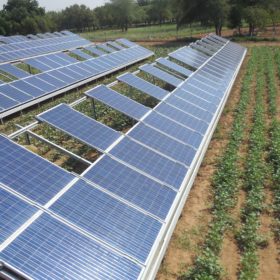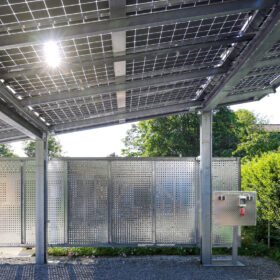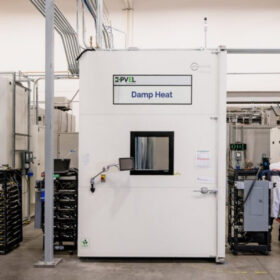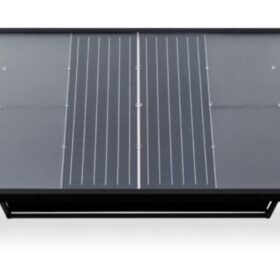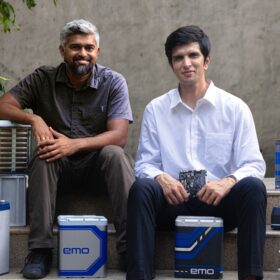Pushing perovskite PV limits
The perovskite solar race is heating up, with a cue of manufacturers forming to test products at the US Department of Energy’s (DoE) PV commercialization facilities, and academics on both sides of The Pond announcing new advances in recent months.
German manufacturer unveils 10 kWh residential redox flow battery
Prolux Solutions has developed a redox flow battery with a charging and discharging capacity of 4 kW and 5 kW of peak power. It is designed to be coupled with PV systems in homes with high consumption profiles.
Anti-soiling PV coating delivers 3% boost in energy production
A study conducted in the semi-arid weather conditions of Ben Guerir, Morocco, evaluated the performance of antistatic and hydrophobic coatings for photovoltaic solar panels. After nine months of operation, the PV panels with coatings developed by Portuguese company ChemiTek produced an average of 3% more energy than the uncoated ones.
Agrivoltaics in India: Challenges and opportunities for scale-up
A new study assesses agrivoltaics development in India and identifies the challenges and opportunities for commercializing these projects.
Biofuels vs. solar electricity for urban mobility
Solar electricity will have to compete with biofuels in the urban mobility landscape. Biofuels, however, have a very low energy productivity per hectare, as well as high requirements for fertilizers, pesticides, and water.
PVEL releases ninth edition of ‘PV Module Reliability Scorecard’
The PV Evolution Labs (PVEL) 2023 Scorecard identifies 250 solar modules from 35 manufacturers as “top performers.”
New solar panels produce water from humidity
US-based manufacturer Source Global has introduced a solar module technology that can produce drinking water from as little as 10% humidity in the air. The company says that its optimized technology can produce water in a range of conditions.
Battery-tech startup EMO Energy raises $1.2 million
The Bengaluru-based startup has developed a cell-agnostic platform that purportedly allows 100% fire safety, 20-minute fast charging, and 120% improvement in battery life.
NASA makes unusual discovery while testing perovskite solar cells in space
NASA has discovered that perovskite solar cells tested in space exhibit less degradation than reference devices tested on Earth. The agency acknowledged that it is uncertain about the specific factors in the space environment that contributed to the superior performance of the perovskite absorber film.
Public-private partnerships: The path to sustainable transportation in India
By bringing together the private sector’s expertise and the public sector’s policy support, public-private partnerships can support the development of new technologies and solutions to improve the performance, efficiency, and affordability of electric vehicles (EVs).


